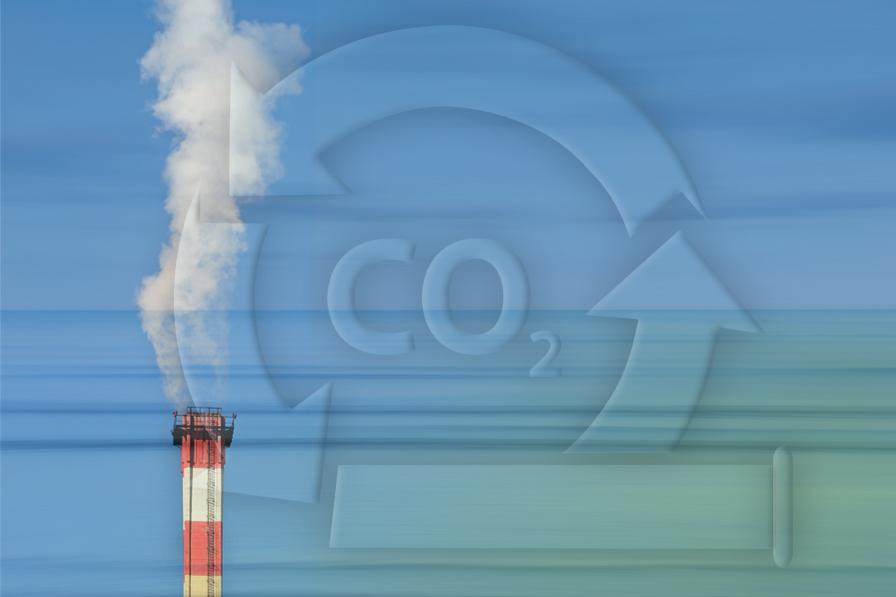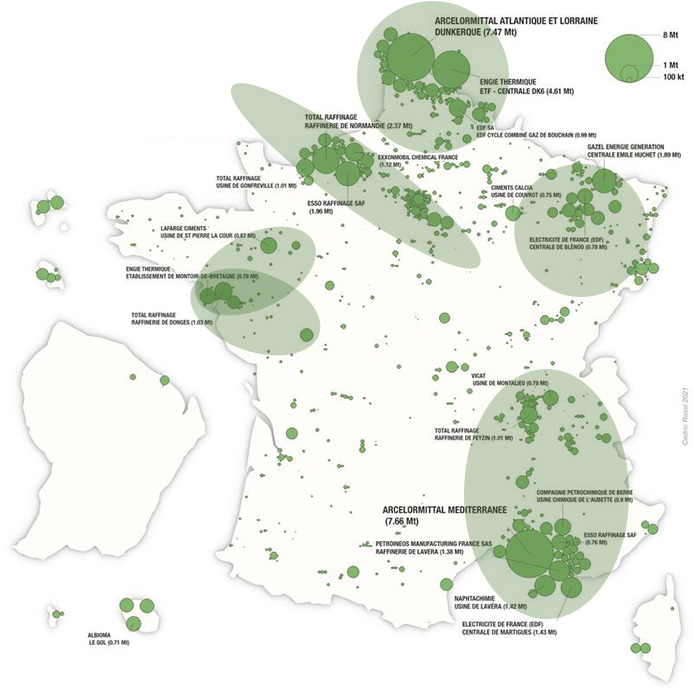CO₂

The capture, storage and recovery of CO2 is a decarbonisation solution that complements energy efficiency gains and the development of renewable and low-carbon energies. CCUS (Carbon Capture, Usage and Storage) is one of the levers in the International Energy Agency’s (IEA) Net Zero Emission scenario, which targets 7.6 Gt of CO2 captured each year from 2050. In light of this, GRTgaz is working to implement CCUS by building dedicated transmission networks to convey CO2 from its location of capture to its place storage or recovery.
“GRTgaz is one of France’s major gas transmission stakeholders. It uses its expertise to support the deployment of new transmission networks to bolster decarbonisation efforts and meet the challenges of the energy transition. GRTgaz is committed to projects that unite all stakeholders in the value chain – from CO₂ emitters to energy recovery project owners – with a view to the industrial development of the regions.”Pierre-Yves Le Strat
Business Manager at the Division for Hydrogen and CO₂ Transport
CCUS: a solution for decarbonising industry
CCUS (Carbon Capture, Usage and Storage) refers to the capture, storage and recovery of CO2. The technique involves capturing CO2 emissions and sequestering them either in old hydrocarbon deposits or geological formations, or repurposing them for new industrial and energy uses (synthetic fuels, etc.). This is a decarbonisation solution for industrial sectors that emit large amounts of CO2 and which have no sustainable decarbonised energy alternatives.
CCUS requires an efficient transmission network to convey very large quantities of CO2 from its location of capture to its place of recovery or storage. And this is where GRTgaz comes in, with its dedicated transmission infrastructure adapted to the task.
What is the current status of France’s CO2 transmission projects?
As a matter of priority, GRTgaz is taking steps to meet the needs of the France’s first national-level projects spread over the three industrial zones with the country’s highest CO2 emissions:
- Dunkirk Basin: the project aims to develop a network of CO2 pipelines in Dunkirk’s industrial port area. The Call for Expressions of Interest in 2023 revealed a need for around 3.5 million tonnes of CO2 to be transported by 2030-2035. It also identified local CO2 recovery projects. The feasibility study is underway, with commissioning targeted for 2028.
- Saint-Nazaire – Montoir-de-Bretagne: in partnership with Elengy and various industrial CO2, the GOCO2 project aims to capture CO2 from industrial sites and transport it to the Saint-Nazaire maritime export terminal for geological storage. Capacity is estimated at 2.6 million tonnes per year by 2030, with up to 4 million tonnes of CO2 per year transported by 2050. A Call for Expressions of Interest is planned for 2024 to fine-tune needs, with commissioning targeted for 2030.
- Bassin Marseille – Fos-sur-Mer - Vallée du Rhône : this project aims to build a CO2 transmission network and an export terminal for liquid CO2. The roadmap study is underway, working together with many local stakeholders (Elengy, oil pipeline operators, industrial emitters, etc.).
EU-ETS C02 emissions (2019)
Dorling cartogram of EU-ETS CO2 emissions in 2019
The circles are proportional to the amount of emissions and, if necessary, moved as little as possible to avoid any overlaps.
Total emissions are 94 Mt.
For reference, total French GHG emissions in 2019 were approximately 440 Mt CO2e, with imported emissions of 358 Mt CO2e (source: Citepa).

Source: European Union Transaction 2021; Sirena 2021 database, The French National Institute of Statistics and Economic Studies (INSEE); La Poste official postal code database 2021; Natural Earth 2021.
Implications for GRTgaz
GRTgaz has established itself as a key player in France’s implementation of CCUS technology. Alongside its partners, it promotes the development of the country’s CO2 capture, storage and recovery sector.
GRTgaz is a member of the “CO2 Club”. The non-profit organisation currently counts 69 French CCUS stakeholders. The club acts as a contact point for the public authorities: a place for discussion, feedback and initiatives.
Alongside TotalEnergies and TechnipEnergies, GRTgaz also co-manages the CCUS working group within the CSF, New Energy Systems.